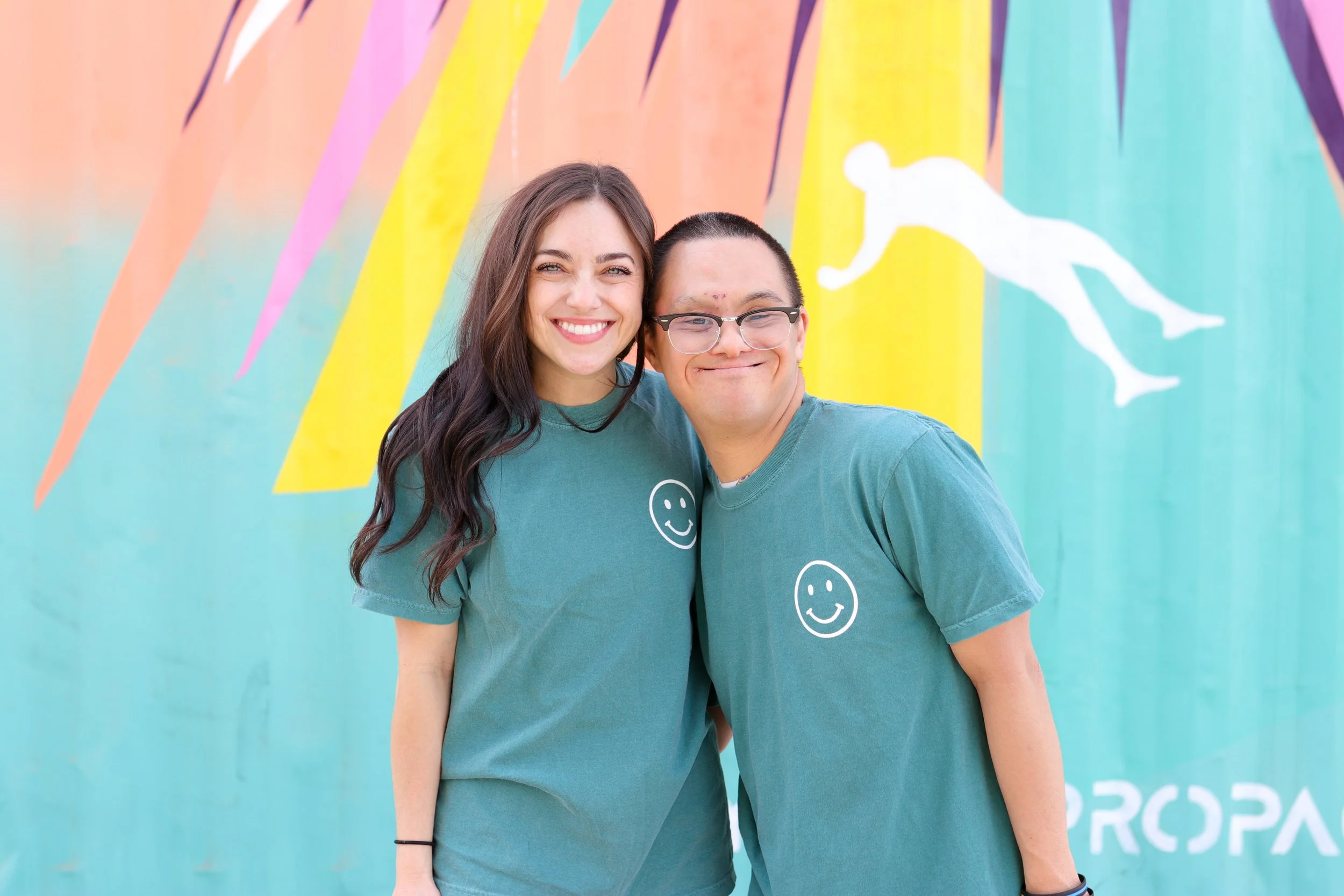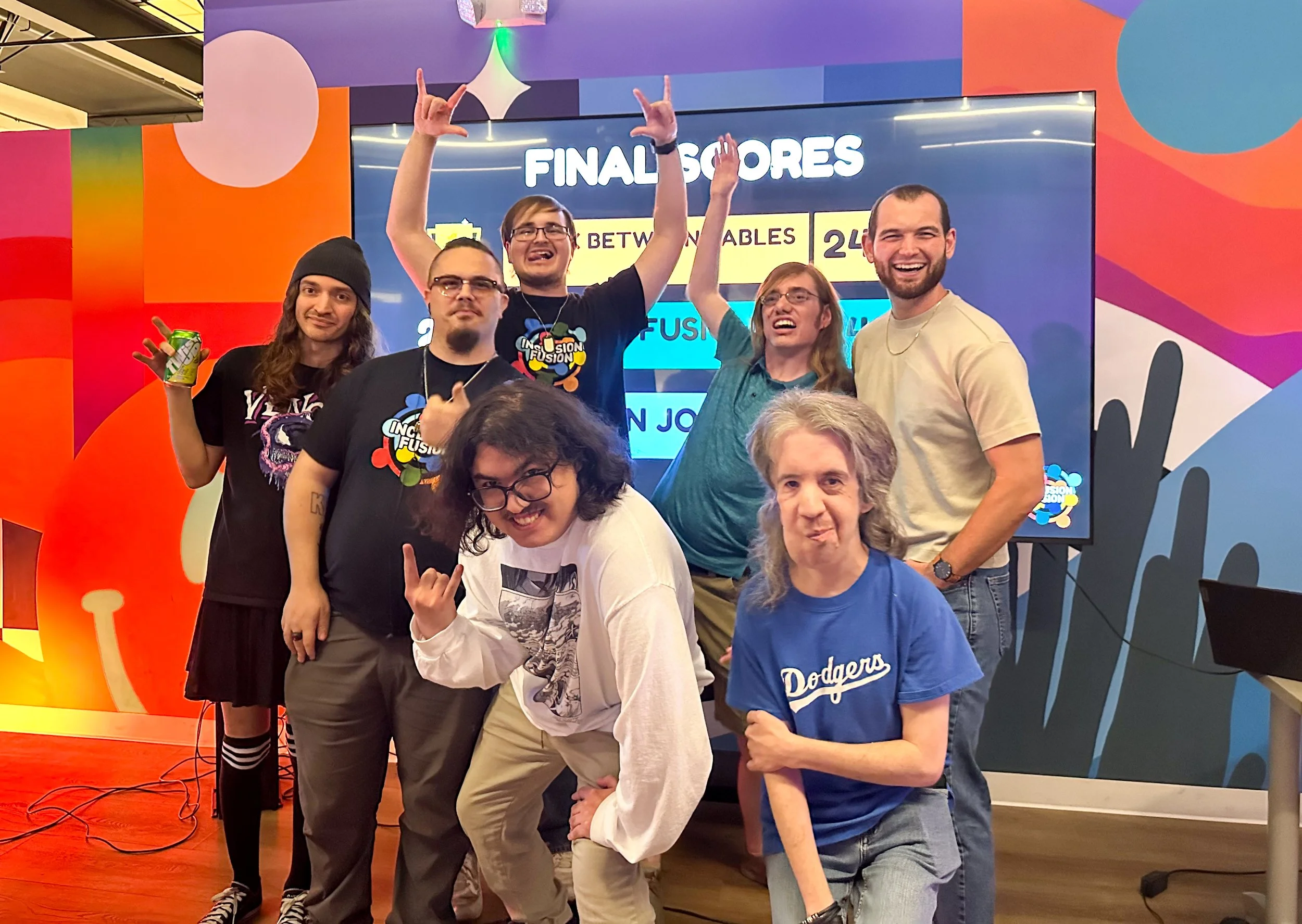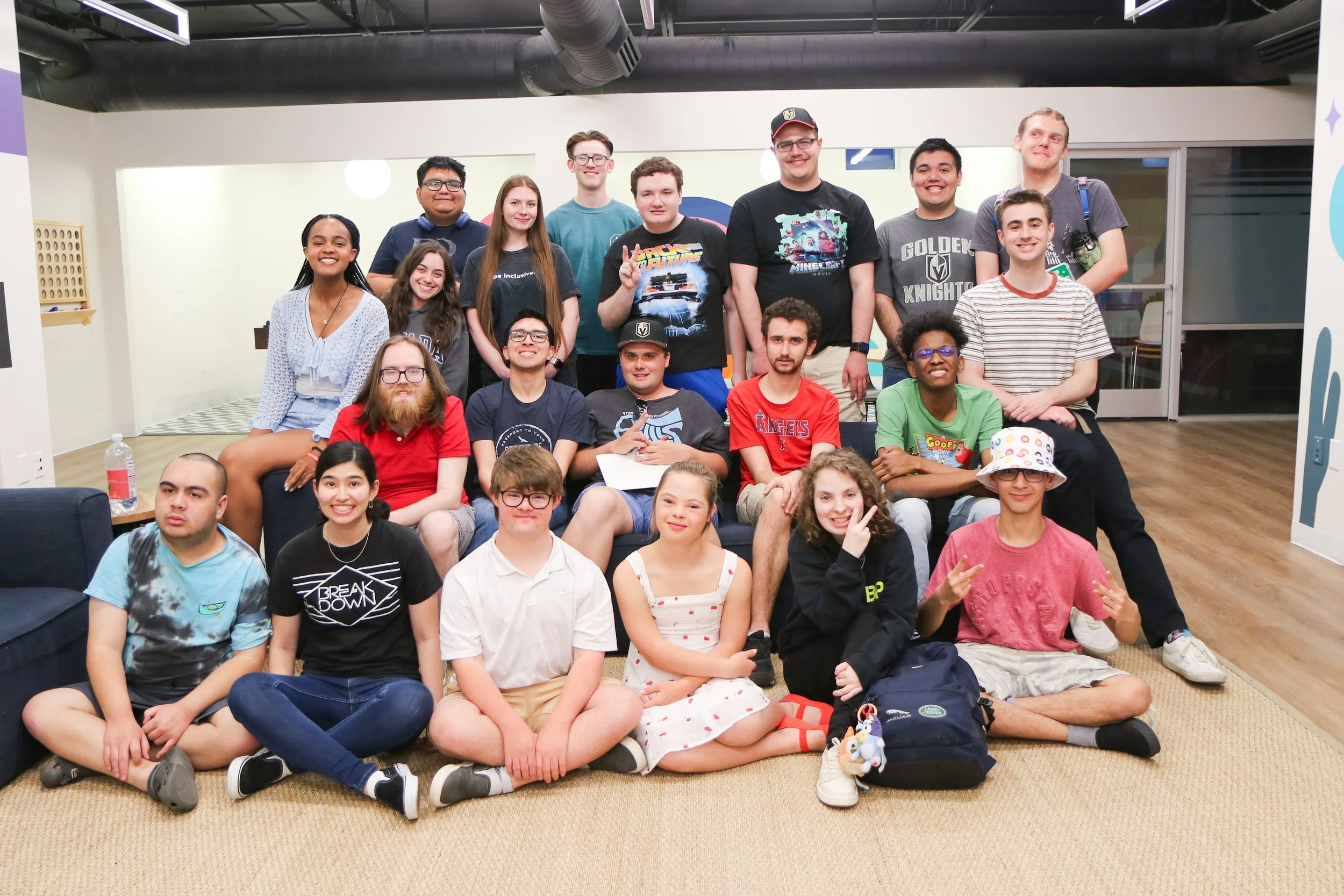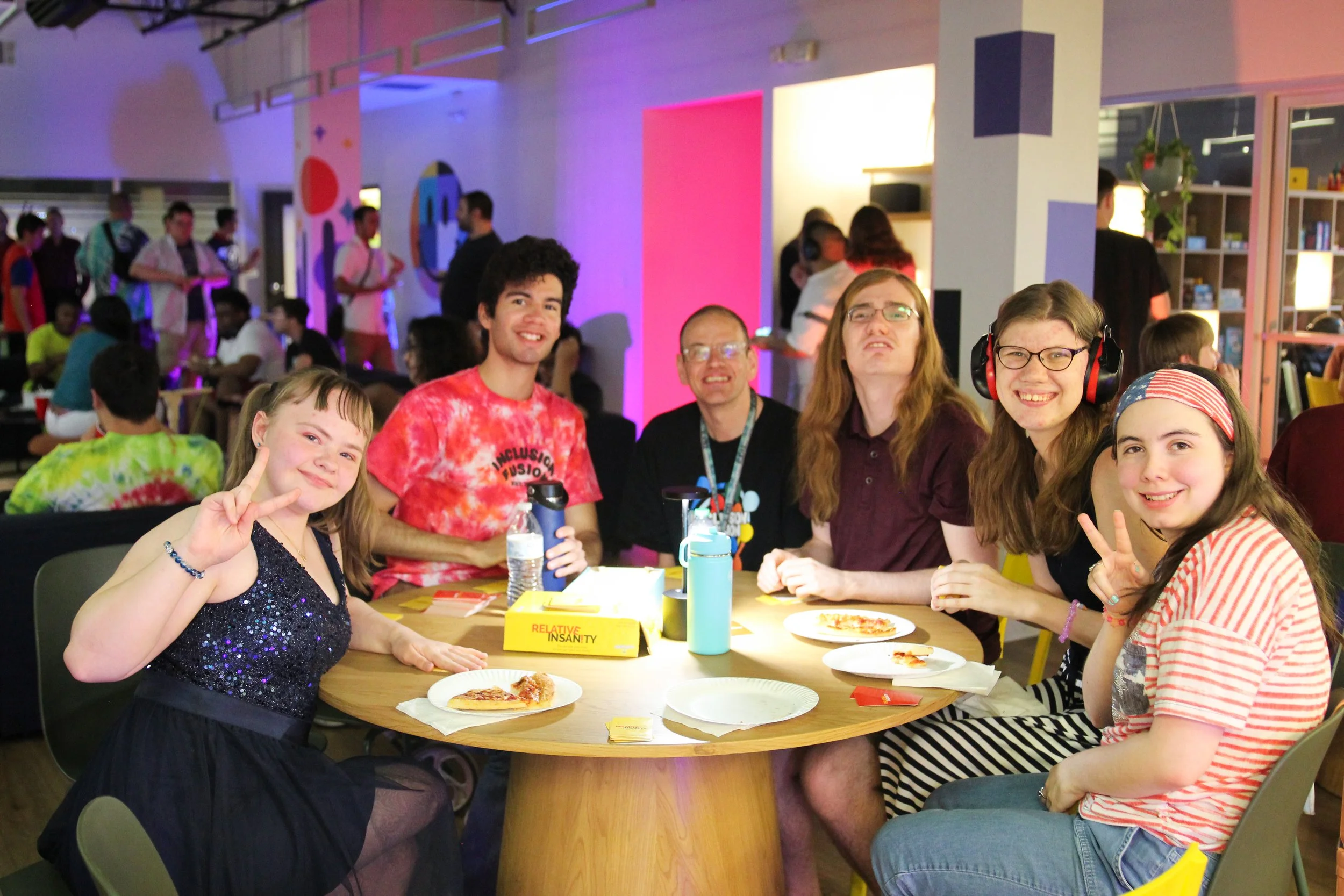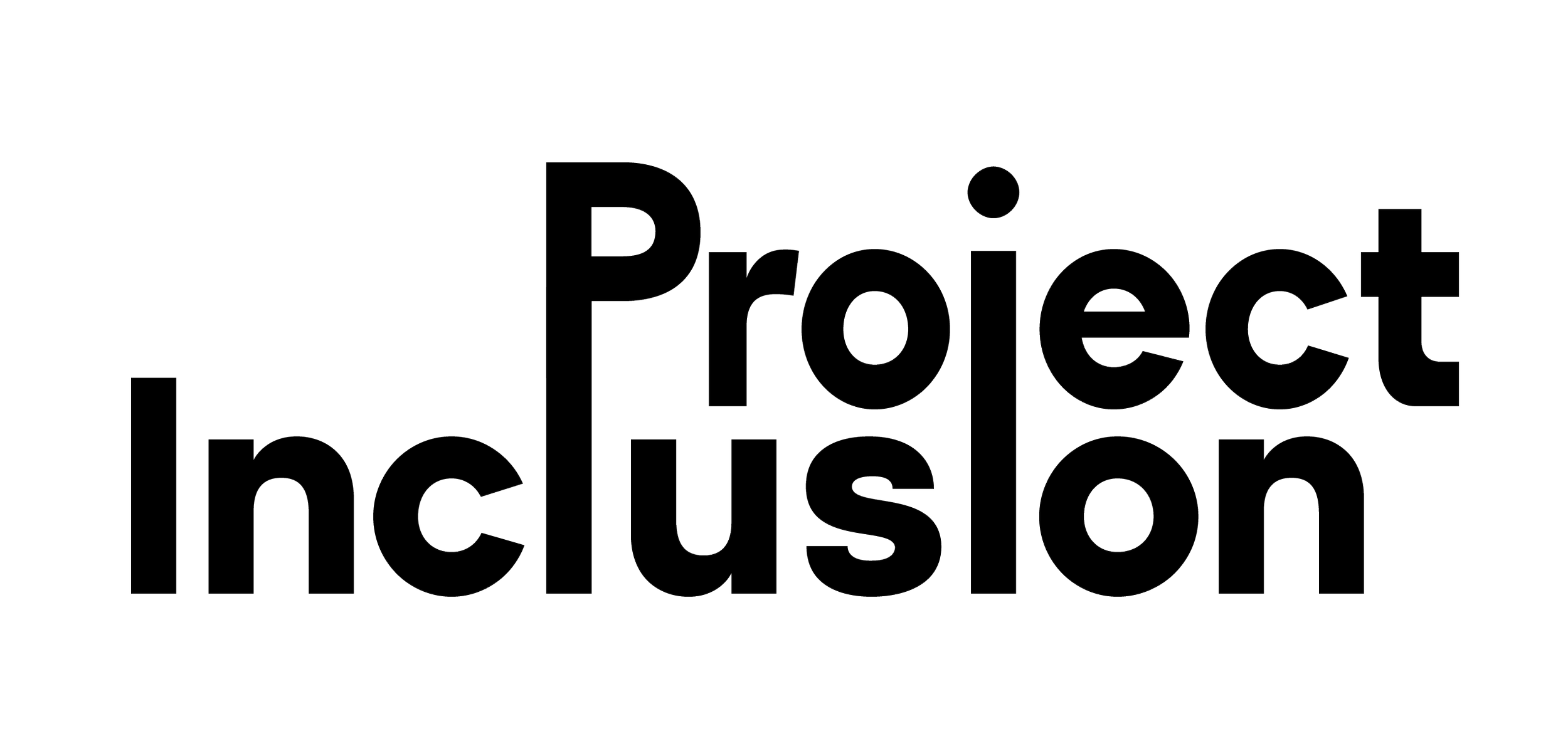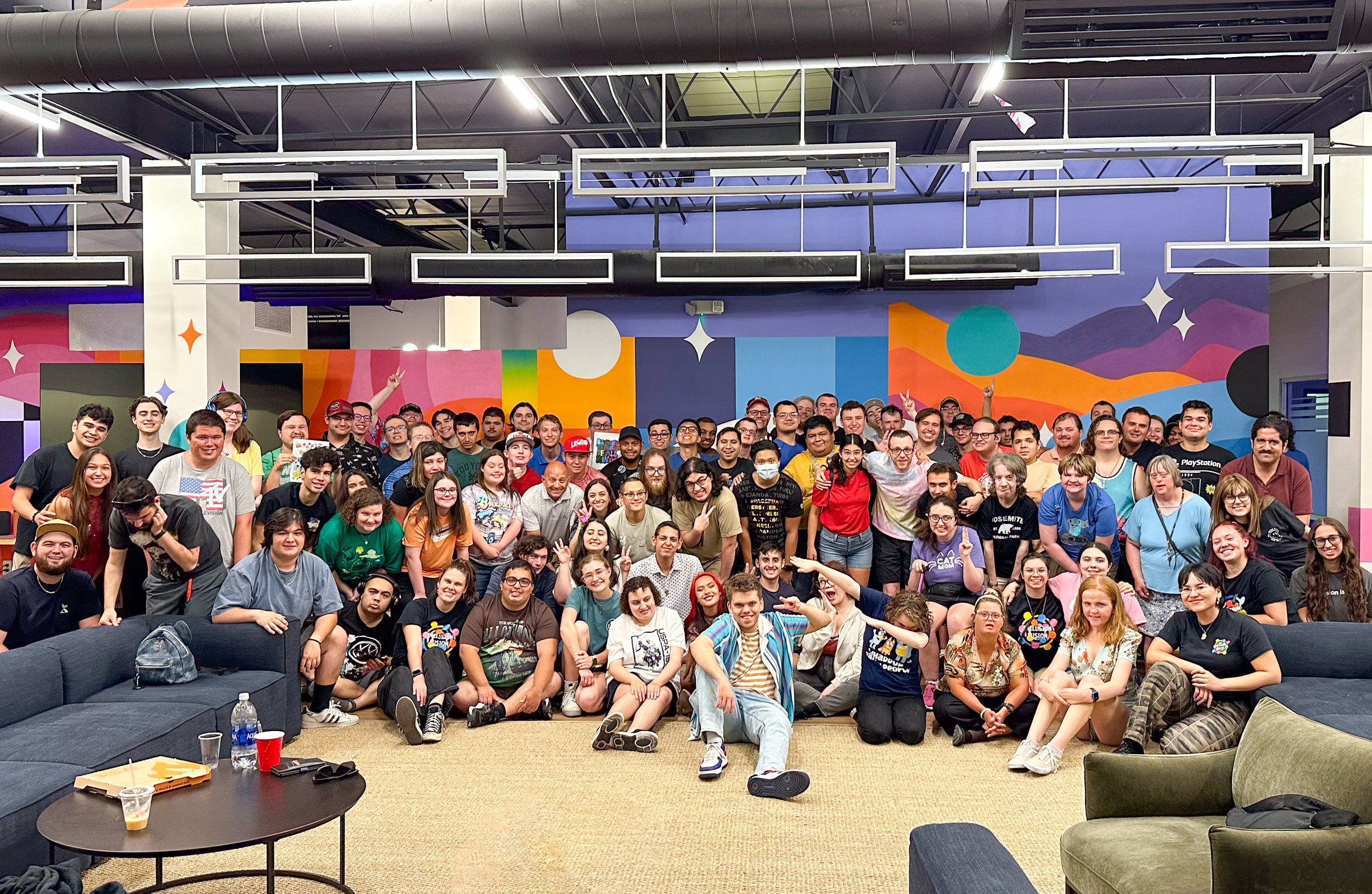
WHAT WE DO
Our Mission
Project Inclusion’s mission is to provide equitable access to inclusive social opportunities and resources for neurodivergent & disabled adults in Southern Nevada. We break down financial and systemic barriers to boost mental health and confidence, forge friendships, combat isolation, and build a vibrant, connected community where inclusion is not just a promise, but a reality.
What We Do
For many families, the cost of ongoing social programs, life skills classes, and inclusive events can be out of reach. That’s where Project Inclusion steps in.
Financial Assistance Program
At Project Inclusion, we know that inclusive, social programs can be life-changing, but often financially out of reach for many families. Our Financial Assistance Program is designed to remove that barrier & open doors to inclusion through financial support. We help ensure that more adults can access
We provide direct financial support to ensure that more neurodivergent adults and their families can access social programs the resources they deserve to thrive socially, emotionally, and mentally. We work closely with families to understand their needs, and we partner with mission-aligned programs & trusted community partners, including organizations like Inclusion Fusion and others serving the neurodivergent and disabled adult community. These programs offer vital opportunities for friendship, socializing, and community connection.
Every dollar of assistance goes toward real, impactful experiences, like social groups, outings, & events, where friendships naturally are made & communities grow
Why It Matters
For neurodivergent adults, and adults with disabilities, structured social opportunities are limited, especially after high school. But the need for friendship, connection, and community doesn’t end at graduation.
Social programs are essential for mental and emotional well-being:
According to the CDC, 1 in 4 adults with disabilities experiences frequent mental distress, double the rate of those without disabilities.
61% report regular feelings of loneliness (National Institute on Disability, 2023).
Loneliness is tied to higher rates of depression, anxiety, and chronic health issues.
Engaging in social activities improves mood, builds self-confidence, reduces isolation, and fosters a sense of belonging. The problem is access, and we’re here to change that.

